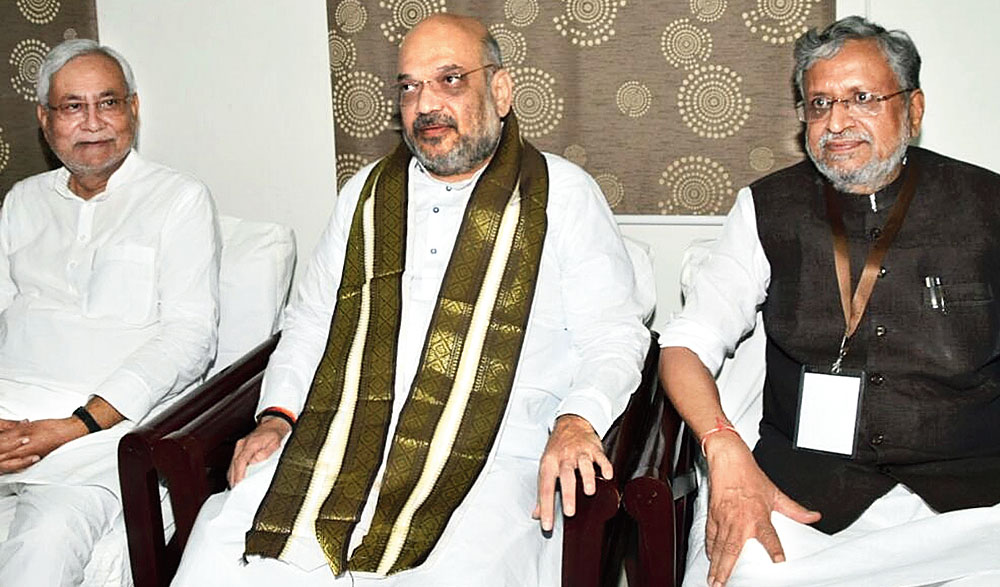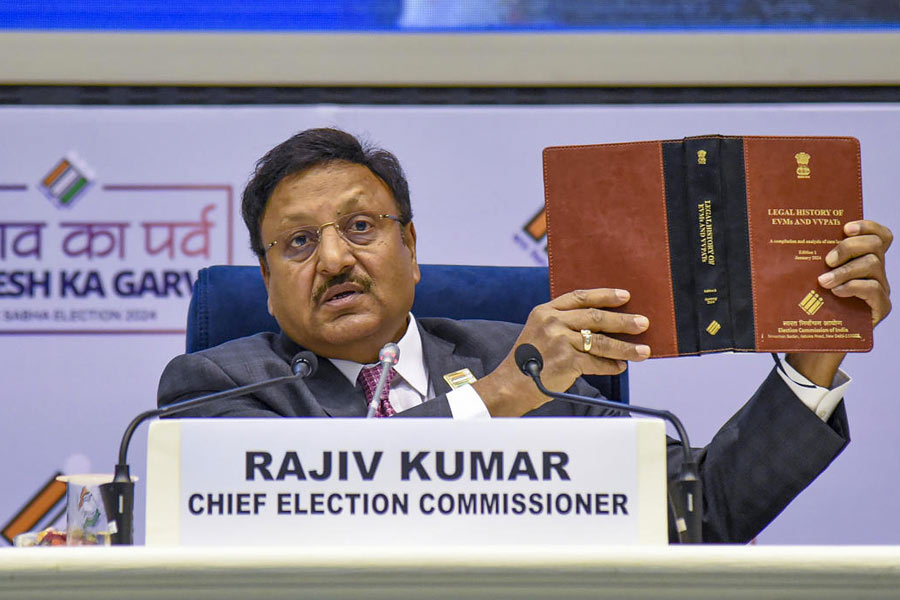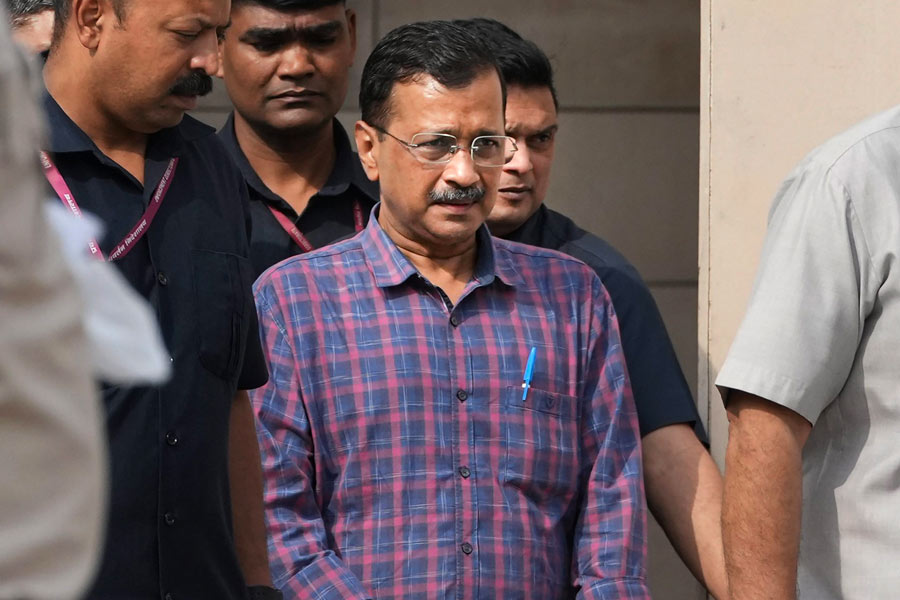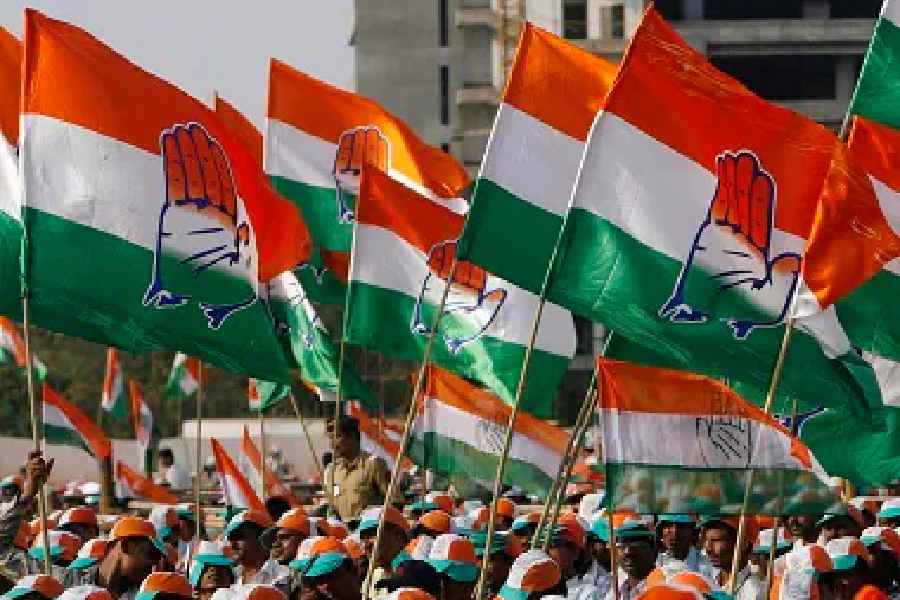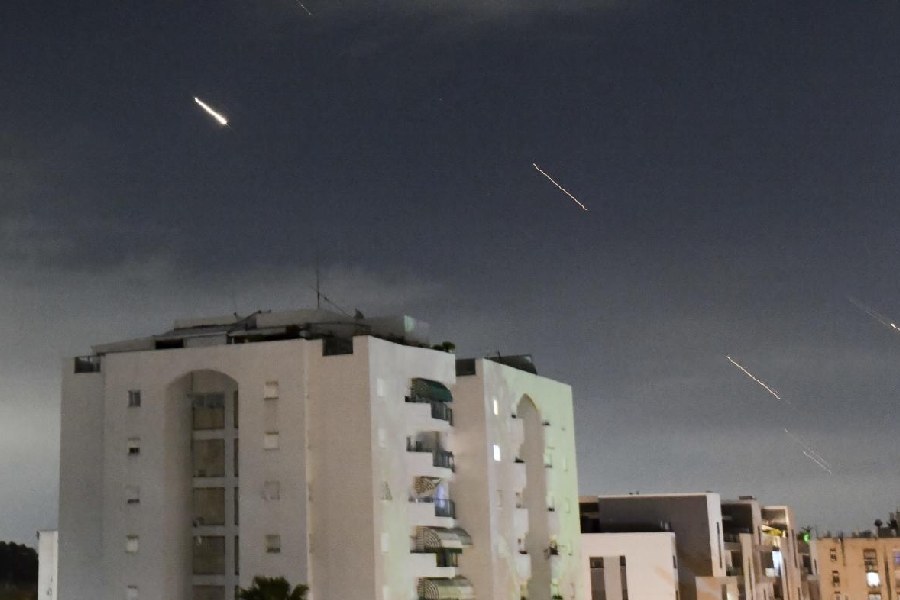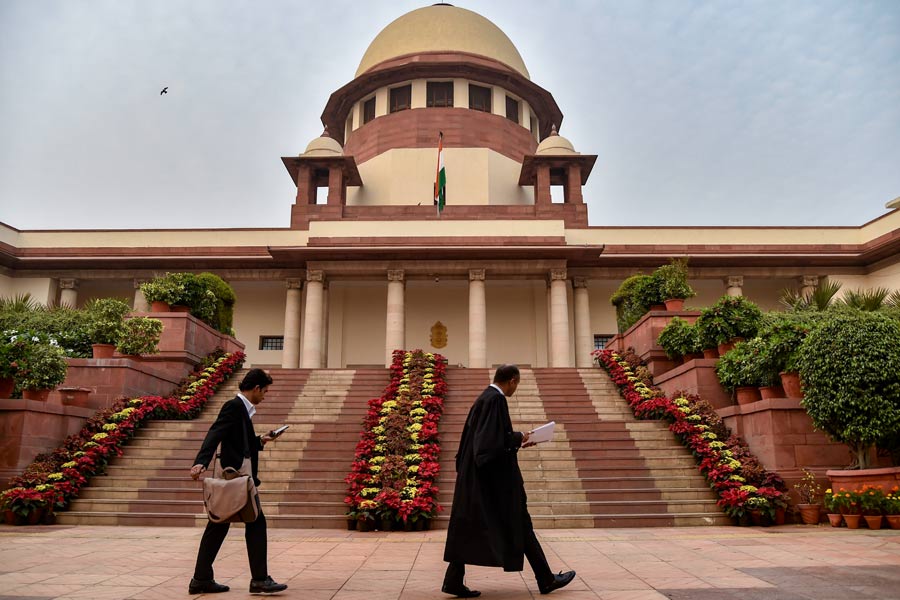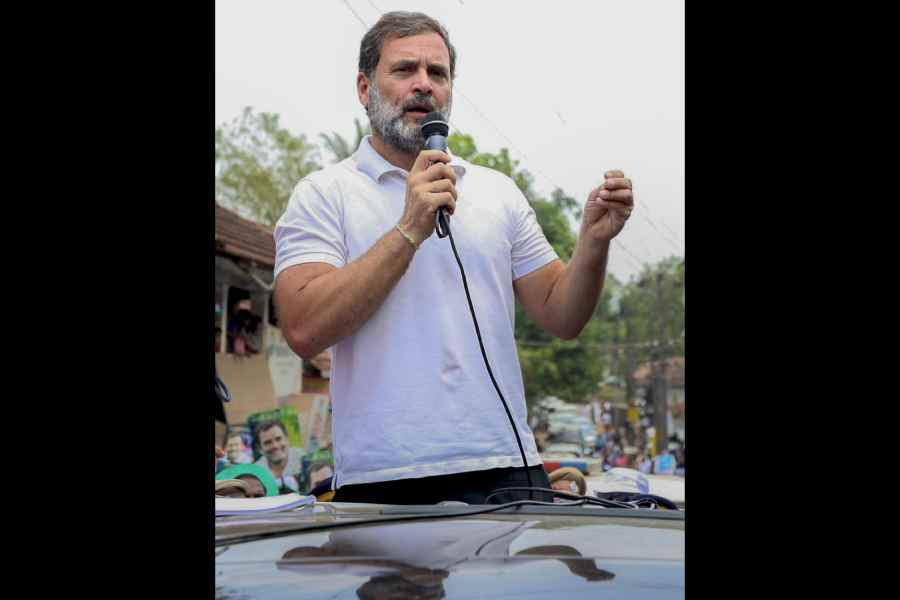The prevailing perception might be that Nitish Kumar’s Janata Dal United has emerged as the winner in seat-sharing negotiations for the forthcoming Lok Sabha election, but BJP strategists claim it is their party which has gained more from the deal in which both parties have vowed to fight an equal number of seats from Bihar.
Chief minister Nitish Kumar and BJP national president Amit Shah had announced the 50:50 deal on Friday in New Delhi.
A senior BJP leader told The Telegraph on Sunday that unlike the past when the JDU used to play the role of Big Brother in the NDA in Bihar, the latest deal had brought it on an equal footing with the BJP.
When the BJP and JDU had contested in alliance in past elections it was the JDU which used to get more seats, the BJP leader pointed out.
In the 2004 general elections, which was the first after Jharkhand was carved out and Bihar was left with 40 Lok Sabha seats, the JDU had contested 24 seats and the BJP 16. In the 2009 elections, the JDU had contested 25 seats and the BJP 15.
The 2014 election had witnessed the JDU walking out of the NDA and it had contested 38 seats alone — winning just two — whereas the BJP had contested 30 and given 10 seats for its then NDA allies Lok Janshakti Party (LJP) and the Rashtriya Lok Samata Party (RLSP).
“As our national president announced, the BJP and the JDU would contest equal number of seats; this means that we are now on the same footing with the JDU,” the BJP leader said.
He claimed that despite sacrificing some of its sitting seats, the BJP would be in an advantageous position in the long run.
Another senior BJP leader claimed that the finalisation of the seat-sharing formula would also have its impact in future Assembly elections as the party would bargain hard with the JDU while deciding the number of seats to be contested.
In the 2010 Assembly elections, when the two had contested in alliance, the JDU had fielded candidates for 142 seats whereas BJP had been given 101 seats.
“This gap would be reduced drastically and the difference in number would not be as prominent as it used to be in the past,” said the BJP leader.
The JDU camp, however, sees things differently.
“One cannot deny the fact that our leader Nitish Kumar is the main face of the NDA in Bihar,” a senior JDU commented on the BJP leaders’ argument. “Moreover, unlike the past when the BJP was not as prominent a party as it has become post 2014, one would have to give credit to our leader for sealing a very honourable deal and bagging seats on a par with a national party.”
He also maintained that in the Assembly elections, the JDU would continue to play the role of Big Brother and the BJP would never get an equal number of seats in those elections.

